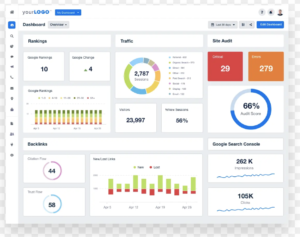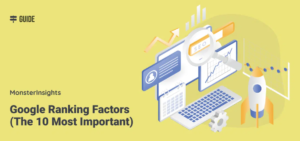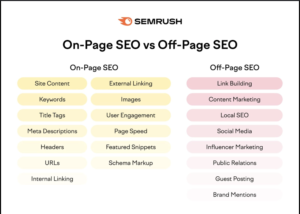As an experienced digital marketer, I’ve seen firsthand the transformative impact that effective SEO keyword rankings can have on a business’s online presence and success. In today’s highly competitive digital landscape, where users are constantly searching for information, products, and services, optimizing your website’s visibility in search engine results is crucial.
In this comprehensive guide, I’ll take you on a journey to unlock the power of SEO keyword rankings and provide you with the strategies and insights you need to dominate the search engine results page (SERP). Whether you’re a seasoned marketer or just starting your journey in the world of digital optimization, this article will equip you with the knowledge and tools to elevate your website’s ranking and drive more targeted traffic to your business.

seo keyword rankings
Contents
- 1 Why SEO Keyword Rankings Matter
- 2 Understanding How Search Engines Rank Websites
- 3 Factors that Influence SEO Keyword Rankings
- 4 Conducting Keyword Research for Better Rankings
- 5 On-Page Optimization Techniques for Improving Keyword Rankings
- 6 Off-Page Optimization Strategies to Boost Keyword Rankings
- 7 Monitoring and Tracking SEO Keyword Rankings
- 8 Tools and Resources for Optimizing Keyword Rankings
- 9 Conclusion: Taking Control of Your SEO Keyword Rankings
Why SEO Keyword Rankings Matter
The importance of SEO keyword rankings cannot be overstated. In the digital age, the majority of consumers begin their purchasing journey by searching online for the products or services they need. If your website isn’t ranking highly for the relevant keywords, you’re missing out on a significant opportunity to connect with your target audience and drive conversions.
High-ranking websites not only enjoy increased visibility and credibility but also benefit from higher click-through rates, more qualified leads, and ultimately, greater revenue. By optimizing your website for the right keywords, you can position your business as an authority in your industry, outshine your competitors, and attract the right customers who are actively seeking what you have to offer.
Understanding How Search Engines Rank Websites
To effectively improve your SEO keyword rankings, it’s essential to understand the inner workings of search engines and the factors they consider when determining website rankings. Search engines, such as Google, use complex algorithms to crawl, index, and evaluate websites based on a variety of signals, including:
- Content Quality and Relevance: Search engines prioritize websites that provide high-quality, relevant, and valuable content to users.
- Technical Website Optimization: Factors like website speed, mobile-friendliness, and secure protocols (HTTPS) can impact a website’s ranking.
- Backlink Profile: The quantity and quality of inbound links (backlinks) pointing to your website play a significant role in your overall ranking.
- User Engagement Metrics: Metrics like bounce rate, time on page, and click-through rate can signal to search engines the level of user satisfaction with your website.
- Keyword Optimization: Proper integration of target keywords throughout your website’s content, metadata, and structure is crucial for ranking.
Understanding these key ranking factors will enable you to develop a comprehensive SEO strategy that addresses both on-page and off-page optimization, ultimately helping you climb the search engine results ladder.

Understanding How Search Engines Rank Websites
Factors that Influence SEO Keyword Rankings
Improving your SEO keyword rankings involves a multifaceted approach. Here are the primary factors that can influence your website’s ranking for specific keywords:
- Keyword Research and Targeting: Identifying the right keywords to target, based on search volume, competition, and relevance to your business, is the foundation of effective SEO.
- On-Page Optimization: Optimizing elements like page titles, meta descriptions, header tags, content structure, and image alt text can significantly impact your keyword rankings.
- Content Quality and Relevance: Creating high-quality, informative, and engaging content that addresses your target audience’s needs and search intent is crucial.
- Technical Website Optimization: Ensuring your website is fast, mobile-friendly, and adheres to best practices for search engine crawling and indexing can boost your rankings.
- Link Building and Off-Page Optimization: Earning high-quality backlinks from authoritative and relevant websites can signal to search engines the credibility and trustworthiness of your website.
- User Engagement Metrics: Metrics like bounce rate, time on page, and click-through rate can indicate to search engines the level of user satisfaction with your website, ultimately impacting your rankings.
By understanding and strategically addressing these key factors, you can develop a comprehensive SEO plan that will help you achieve higher keyword rankings and drive more qualified traffic to your website.

Factors that Influence SEO Keyword Rankings
Conducting Keyword Research for Better Rankings
Effective keyword research is the foundation of any successful SEO strategy. To improve your SEO keyword rankings, you must first identify the right keywords to target – those that align with your business objectives, resonate with your target audience, and have the potential to drive high-quality traffic to your website.
Here’s a step-by-step approach to conducting comprehensive keyword research:
- Understand Your Target Audience: Begin by defining your ideal customer persona and the types of queries they are likely to search for. This will help you identify the most relevant and high-intent keywords.
- Analyze Your Competition: Research your top competitors and the keywords they are targeting. This will provide valuable insights into the competitive landscape and help you identify opportunities to differentiate your content.
- Utilize Keyword Research Tools: Leverage powerful tools like Google Keyword Planner, SEMrush, and Ahrefs to uncover relevant keywords, analyze search volume, and assess the level of competition.
- Prioritize Long-Tail Keywords: While high-volume, broad keywords may seem appealing, long-tail keywords (more specific, lower-volume queries) often have lower competition and higher conversion rates.
- Continuously Refine and Expand: Regularly review and update your keyword list as your business evolves and new trends emerge in your industry. This will ensure you’re always targeting the most relevant and valuable keywords.
By conducting thorough keyword research and targeting the right keywords, you can optimize your website content and structure to better align with your audience’s search intent, ultimately boosting your SEO keyword rankings.
On-Page Optimization Techniques for Improving Keyword Rankings
On-page optimization is a crucial component of any effective SEO strategy. By optimizing the various elements of your website, you can signal to search engines that your content is relevant, authoritative, and deserving of higher rankings. Here are some key on-page optimization techniques to consider:
- Title Tags and Meta Descriptions: Craft compelling, keyword-rich title tags and meta descriptions that accurately reflect the content of your pages and entice users to click through.
- Header Tags (H1, H2, H3): Utilize header tags to structure your content in a logical and hierarchical manner, with your primary keyword featured in the H1 tag.
- Keyword Placement and Density: Strategically incorporate your target keywords throughout your content, including in the opening paragraph, body text, and conclusion, while avoiding keyword stuffing.
- Image Optimization: Optimize your images by including relevant alt text, file names, and captions that incorporate your target keywords.
- Internal Linking: Build a strong internal linking structure by connecting related pages and content on your website, passing link equity and reinforcing the relevance of your pages.
- Mobile Optimization: Ensure your website is mobile-friendly and provides a seamless user experience across all devices, as mobile-friendliness is a ranking factor.
- Page Speed Optimization: Improve your website’s loading speed by optimizing images, minifying code, and implementing caching techniques to enhance the user experience and search engine rankings.
By implementing these on-page optimization techniques, you can effectively communicate the relevance and value of your content to search engines, leading to improved SEO keyword rankings and increased visibility in the SERPs.

On-Page Optimization Techniques for Improving Keyword Rankings
Off-Page Optimization Strategies to Boost Keyword Rankings
While on-page optimization is essential, off-page optimization strategies are equally important in improving your SEO keyword rankings. Off-page optimization refers to the actions taken outside of your website to enhance its authority, credibility, and relevance in the eyes of search engines. Here are some key off-page optimization strategies to consider:
- Link Building: Earning high-quality, relevant backlinks from authoritative websites can significantly boost your website’s domain authority and improve your keyword rankings.
- Guest Posting: Contribute guest posts to industry-relevant blogs and publications, which can help you gain valuable backlinks and expand your reach to new audiences.
- Directory Submissions: List your business in reputable online directories, such as Google My Business, Bing Places, and industry-specific directories, to improve your local SEO and citation signals.
- Social Media Engagement: Actively participate in social media platforms relevant to your industry, share your content, and engage with your audience to build brand awareness and social signals.
- Influencer Outreach: Collaborate with influential figures or industry experts in your niche to create co-branded content, secure backlinks, and leverage their authority to boost your own.
- Local SEO Optimization: Optimize your website for local search by claiming and optimizing your Google My Business listing, creating location-specific content, and building local citations.
By implementing a comprehensive off-page optimization strategy, you can enhance your website’s overall authority, visibility, and relevance, leading to improved SEO keyword rankings and increased organic traffic.
Monitoring and Tracking SEO Keyword Rankings
Monitoring and tracking your SEO keyword rankings is essential to the success of your optimization efforts. By regularly monitoring your rankings, you can identify areas for improvement, track the impact of your strategies, and make data-driven decisions to further enhance your performance.
Here are some key steps to effectively monitor and track your SEO keyword rankings:
- Establish Baseline Rankings: Begin by conducting a thorough audit of your current keyword rankings across your website pages. This will serve as a baseline to measure your progress.
- Utilize Rank Tracking Tools: Leverage powerful rank tracking tools like Google Search Console, SEMrush, and Ahrefs to monitor your keyword rankings over time and receive alerts on any significant changes.
- Analyze Ranking Fluctuations: Closely examine any changes in your keyword rankings, both positive and negative, and identify the potential causes. This will help you refine your SEO strategies accordingly.
- Track Relevant Metrics: In addition to keyword rankings, monitor other important metrics such as organic traffic, click-through rates, and conversions to gain a comprehensive understanding of the impact of your SEO efforts.
- Regularly Review and Optimize: Schedule regular reviews of your keyword rankings and performance data to identify new opportunities, address any issues, and continuously optimize your SEO strategy.
By consistently monitoring and tracking your SEO keyword rankings, you can make informed decisions, optimize your strategies, and ensure that your website remains competitive and visible in the ever-evolving search landscape.
Tools and Resources for Optimizing Keyword Rankings
To effectively optimize your SEO keyword rankings, it’s crucial to leverage a variety of tools and resources. Here are some of the most powerful and widely used tools to consider:
- Keyword Research Tools:
- Google Keyword Planner
- SEMrush
- Ahrefs
- Moz Keyword Explorer
- Ubersuggest
- Rank Tracking Tools:
- Google Search Console
- SEMrush
- Ahrefs
- Moz Pro
- AWR Cloud
- On-Page Optimization Tools:
- Yoast SEO
- Screaming Frog
- Google PageSpeed Insights
- Lighthouse
- W3C Validator
- Link Building Tools:
- Ahrefs
- Majestic
- Moz Link Explorer
- BuzzSumo
- HARO (Help a Reporter Out)
- Analytics and Reporting Tools:
- Google Analytics
- Google Data Studio
- Supermetrics
- SEMrush
- Ahrefs
By leveraging these powerful tools and resources, you can conduct thorough keyword research, monitor your rankings, optimize your website’s on-page elements, build high-quality backlinks, and track the overall performance of your SEO efforts – all of which are essential for improving your SEO keyword rankings and driving sustainable growth for your business.
Conclusion: Taking Control of Your SEO Keyword Rankings
In the ever-evolving world of digital marketing, mastering SEO keyword rankings is a critical component of success. By understanding the importance of SEO, the factors that influence rankings, and the strategies to optimize both on-page and off-page elements, you can take control of your website’s visibility and position your business for long-term growth.
Ready to take your SEO keyword rankings to the next level? Contact our team of digital marketing experts today to discuss a customized strategy that will help you dominate the search engine results page and drive more qualified traffic to your website. Together, we’ll unlock the true potential of your online presence and propel your business to new heights of success.
